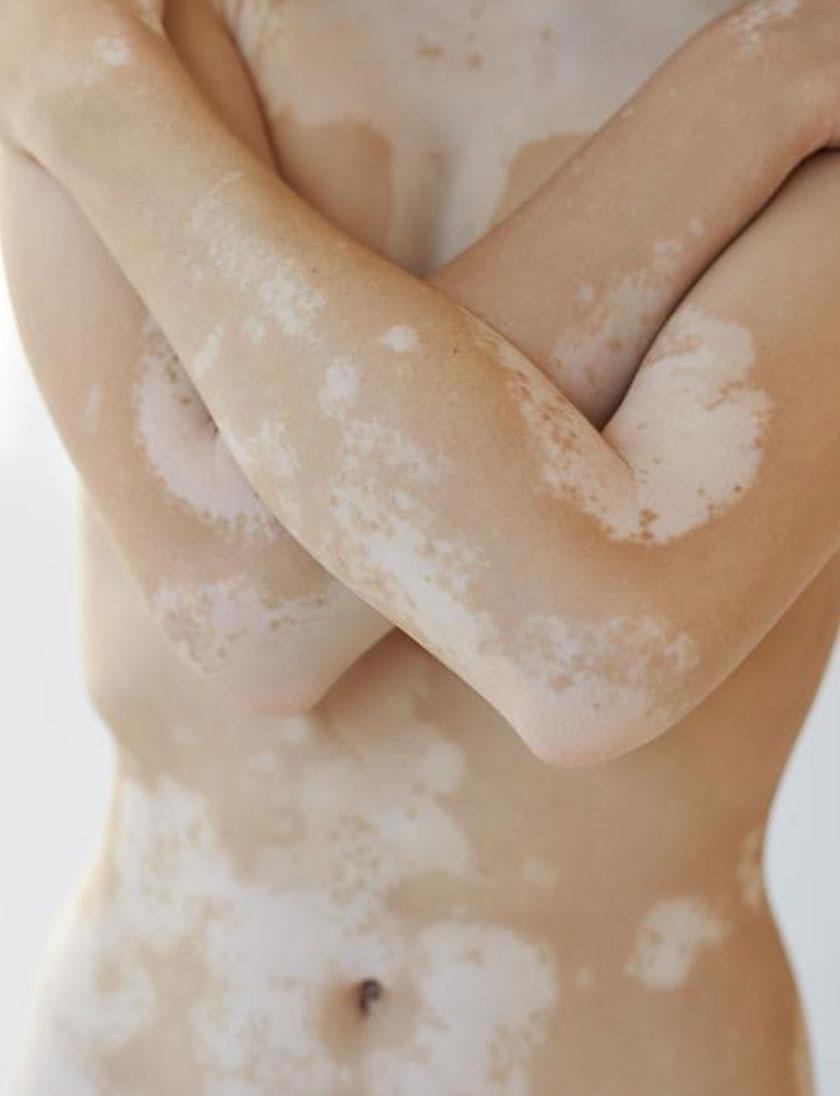Vitiligo
Vitiligo disease is an autoimmune disease characterized by the loss of melanin pigment in the skin. In this disease, white, colorless spots appear on the skin. Vitiligo usually occurs when melanocytes (pigment-producing cells) in the skin are subjected to an autoimmune attack. In this blog post, I will give information about the symptoms, causes and treatment options of vitiligo.
1. Symptoms:
Vitiligo disease manifests itself with the formation of white, colorless spots on the skin. These spots usually appear symmetrically in different parts of the body. Vitiligo is frequently seen in areas such as the face, hands, feet, lips, arms and legs. As the disease progresses, the size and number of spots may increase. Vitiligo spots can often be more sensitive to sunlight.
2. Reasons:
The exact causes of vitiligo are not fully known. However, it is thought to be an autoimmune disease. The immune system mistakenly attacks melanocytes, stopping pigment production. Factors such as genetic predisposition, stress, hormonal changes, sunburn or injury can increase the risk of vitiligo.
3. Treatment:
There is no definitive cure for vitiligo, but there are treatment options to control symptoms and reduce the appearance of spots. Treatment is usually determined by the severity of symptoms, the number of spots, and the age of the patient. Treatment options include topical corticosteroids, topical calcineurin inhibitors, phototherapy, dermabrasion, skin grafting, and depigmentation. The most appropriate treatment plan for each patient should be determined by a dermatologist.
4. Psychosocial Support:
Vitiligo disease can be physically uncomfortable but also have psychological effects. People living with vitiligo may experience problems such as loss of self-confidence, depression and social anxiety. Therefore, it is important to get psychosocial support, join support groups, and meet with a psychologist or psychiatrist.
Vitiligo is a skin disease characterized by the loss of melanin pigment. Symptoms manifest themselves with the formation of white, colorless spots. Although the exact causes of vitiligo are not fully known, it is thought to be an autoimmune disease. Treatment options are aimed at controlling symptoms and are determined according to each patient's condition. Psychosocial support also plays an important role in coping with vitiligo. Remember, it is important to consult with a dermatologist to determine your best treatment plan for vitiligo.


 Whatsapp
Whatsapp